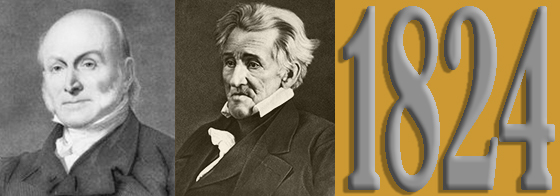On December 1, 1824, with neither John Quincy Adams nor Andrew Jackson receiving a majority of votes in the Electoral College, the United States House of Representatives was given the task of deciding the winner in accordance with the Twelfth Amendment to the United States Constitution.
The House selected Adams. Jackson and his supporters felt deeply aggrieved, and immediately set about preparing for the next election, which Jackson won handily. Jacksonian supporters referred to the election of 1824 as “the Stolen Election,” in no small part because Jackson had received more popular votes.

1 reply on “The “Stolen Election””
By 1824, the Federalist Party had fallen on hard times. Adams (who had broken with the Federalist years earlier), Jackson, and Henry Clay (who threw his support to Adams in the end) were each affiliated with the Democratic-Republican Party, albeit in different factions.